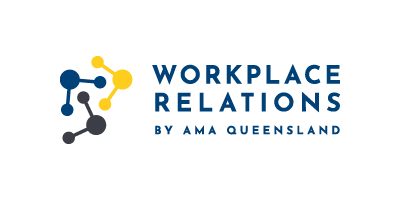Preventative approach to absenteeism
Navigating the rules of employee leave in Australia can be confusing for business owners.

Navigating the rules of employee leave in Australia can be confusing for business owners. The underpinning legislation that outlines entitlement is the National Employment Standards (NES), which set minimum requirements for most types of leave, including annual, sick, compassionate leave and others.
However, your obligations towards your employees may extend beyond the NES. Things to consider are relevant industry awards, employment contracts and even state or territory laws can outline more generous leave provisions in certain situations.
It’s essential to have clear, accessible leave policies . Well defined leave policies promote transparency, reduce uncertainties and ensure consistency and fairness in dealing with leave requests. In return, they create a smoother experience for both you and your team. Alongside understanding your employer obligations towards leave, it is also good practice to take a preventative approach towards instances of leave such as absenteeism.
If you are a Toolkit subscriber or the current holder of the Workplace Relations Workplace Health and Safety Policy/Work Health and Safety Manual you will be familiar with the graphic below from Worksafe Queensland. It indicates the comprehensive approach to creating and maintaining a mentally healthy workplace.
Purchase Toolkit
Purchase Manual

Source: worksafe qld.gov.au
When it comes to work health and safety legislation, this is covered by the Act, Regulations and Codes of Practice. Such as:
- Work Health and Safety (Psychosocial Risks) Amendment Regulation 2022
- Managing the risk of psychosocial hazards at work Code of Practice which came into effect in April 2023
- Anti-Discrimination Act 1991
- Industrial Relations Act 2016
- Fair Work Act 2009
- Human rights Act 2019
- Information Privacy Act 2009
And in the event of work-related psychological injury the Workers Compensation and Rehabilitation Act 2003.
Data such as turnover reports, hours of work (particularly overtime hours), compensation claims, incident and injury records, leave reports focused on sick leave are a great way to see how mentally healthy your practice is.
There are preventative measures a practice can put in place to prevent work-related absenteeism such as:
- high and/or low job demands
- low job control
- poor support
- low role clarity
- poor consultation and communication
- low reward and recognition
- poor organisational justice
- poor workplace relationships and interpersonal conflict
- bullying
- harassment
- poor environmental conditions
- violence and aggression
- traumatic events
- remote or isolated work
Sometimes staff being absent is unavoidable, however, by creating a mentally healthy workplace the benefits could be:
- decrease in work-related injuries and illnesses
- decrease in workers’ compensation claims
- thriving employees
- increase in productivity
- increase in engagement and job satisfaction
- decrease in turnover and recruitment costs
- increase in attraction of top talent
- decrease in absenteeism.
To assess how mentally healthy your practice is, consider if your practice:
- promotes workplace practices that support positive mental health
- eliminates and minimises psychological health and safety risks through identification and assessment of psychosocial hazards
- builds the knowledge, skills and capabilities of workers to be resilient and thrive at work
- is free of stigma and discrimination
- supports the recovery of workers returning after a physical or psychological injury.
If you answered no to any of the above, give Workplace Relations a call on 07 3872 2264 for practical steps and guidance on how to decrease absenteeism and create a mentally healthy workplace. Alternatively, you can email us on workplacerelations@amaq.com.au
 | AMA Queensland Workplace RelationsPhone: 07 3872 2264
|